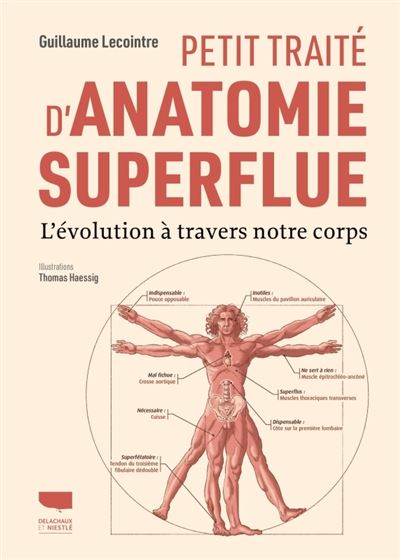
- This event has passed.
[Lecture Café des Sciences - Avignon University] "Evolution through our bodies" by Guillaume Lecointre

Wednesday 23 April at 8pm
Salle de l'Antichambre
Avignon Town Hall, Place de l'Horloge, 84000 Avignon
- Free admission
Joint Avignon University & café des sciences conference
"Evolution through our bodies
by Guillaume Lecointre, zoologist and teacher-researcher in systematics - the science of biological classification -, professor at the Muséum national d'Histoire naturelle.
This conference uses the human body as a vessel for travelling through time, the time of evolution. It's a journey that shows us that our body, far from being perfect, is in fact made up of many superfluous or 'badly designed' organs that are even disadvantageous.
Medicine has imposed on us the image of a human body that functions here and now, with everything it needs, where it needs it. A standardised body. This book shows us something else: useful bits and pieces, useless organs that all or some of us possess, and even organs or dispositions whose conformation can do us a disservice.
All these "parts" that make us up can only be understood in the light of evolution. The human body has a long history: that of the species with which we share some of the characteristics of our anatomy. This book is the first to provide a date for this history, while at the same time recalling how scientists place organs in time, and shedding light on the latest developments in the theory of evolution. It also sheds light on the latest developments in the theory of evolution, which helps us to understand all this little-known superfluity.

Cover of the book "Petit traité d'anatomie superflue" by Guillaume Lecointre
Guillaume Lecointre hosted the science column for Charlie Hebdo for 10 years and contributes to the natural history quarterly Species. He is the author or co-author of 150 professional articles and 40 books, including Evolution, a topical issue ?
Whether you're a specialist or a novice, the Cafés des Sciences are for everyone who's curious about science.
https://cafesciences-avignon.fr/